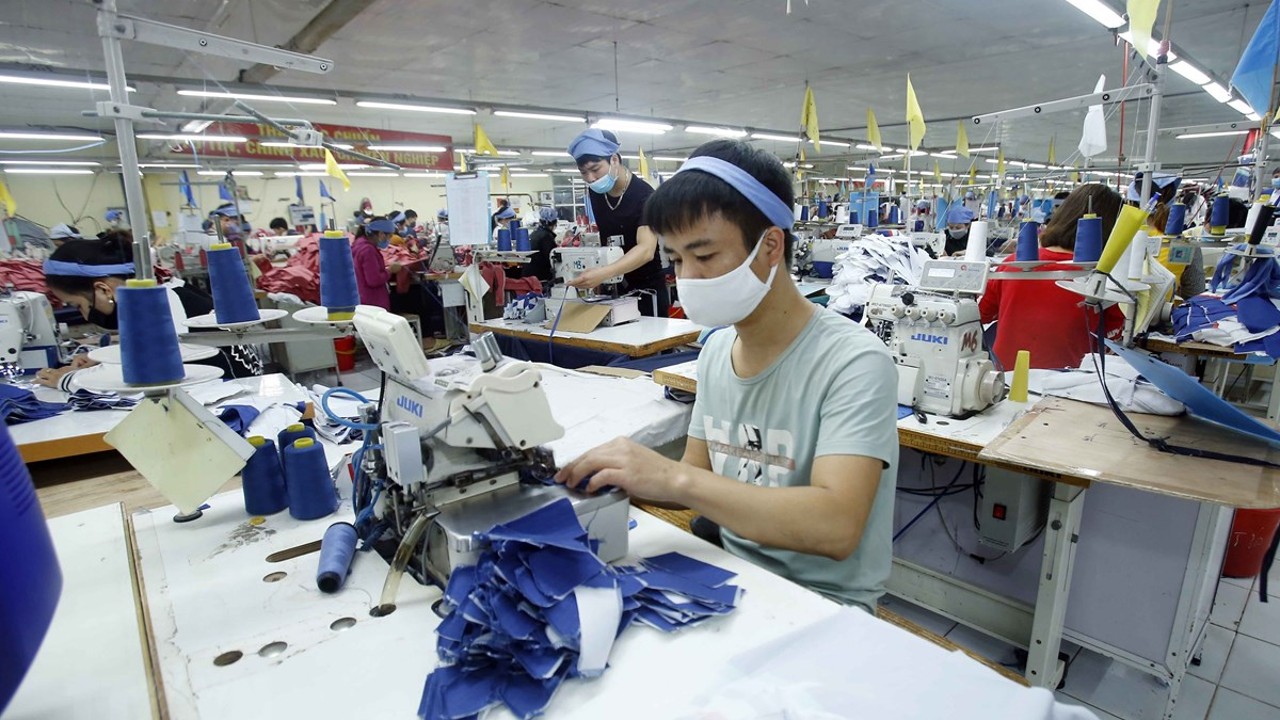HCMC – The Government of the Netherlands and the International Labor Organization (ILO) signed an agreement on December 16 for a new project that will anticipate and address future skills needs in the garment sector in Vietnam.
According to the Ministry of Industry and Trade, Vietnam’s textiles and garment industry is key to the country’s growth and development. It employs about 2.7 million people, of whom a vast majority are women.
The latest report from the Vietnam Textile and Apparel Association estimated that the textiles and garment industry would reach its target of US$39 billion in export revenue this year, equal to the 2019 figure.
However, the Covid-19 pandemic has hit the industry hard. In addition to factory closures and lost incomes, the pandemic has accelerated the drivers and megatrends that are massively changing textiles and garment production and work. These include automation and digitalization as well as the introduction of greener and cleaner production to mitigate climate change.
As part of the new two-year project starting in January 2022, the ILO will support the Government, employers’ and workers’ organizations in Vietnam to understand what skills the industry and its workers need now and in the future.
The project will focus on those at the highest risk of losing their jobs due to the Covid-19 crisis and the increased automation and digitalization in the industries. This is an important step toward building a more resilient, inclusive and sustainable industry with decent work opportunities for more women and men.
“Skills development and lifelong learning play a key role in addressing the impact of Covid-19, building the resilience of workers and firms, and shaping a future that works for all,” said ILO Vietnam Officer-in-Charge Nilim Baruah.
“Timely investment in skills can help speed up economic recovery, a safe return to work, reduce the career scarring effects of prolonged unemployment and skills mismatch, and take advantage of opportunities that may otherwise dissipate over time. It includes specific technical skills needed by the industries to grow, new technical skills due to technological and other changes in work and production and core employability skills.”
The Netherlands believes that a sustainable textile value chain is a precondition for a healthy recovery from the impact of Covid-19.
“Sustainable business models, including employability and skills development, contribute to the various current and future challenges of the industry,” said Ambassador of the Kingdom of the Netherlands Elsbeth Akkerman. “I am proud that with this project, we are taking the next step toward a future-proof and sustainable textile and garment sector.”
The new project is guided by the ILO Centenary Declaration for the Future of Work (2019), the ILO Global Call to Action for a Human-Centred Recovery (2021) and the recent International Labor Conference resolution concerning skills and lifelong learning.
It will apply lessons learned from similar ILO garment sector skills anticipation projects in the garment sector in Brazil, Ethiopia, Jordan and Peru and build on the achievements of past ILO skills development programs in Vietnam.
The project will be implemented in close collaboration with the IFC-ILO Better Work Vietnam program, and the findings and achievements in Vietnam will be shared with other Member States of the ILO through the creation of a regional knowledge platform on future skills needs in textiles and garments in Asia and the Pacific.











